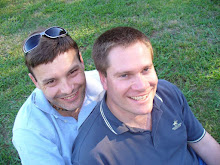
This week I noticed my first poppies in Turkey while standing alone on the shore of ANZAC cove. Their presence caught me by surprise. I hadn't expected to see them. Poppies were a foreign plant that grew somewhere else in the world. Had they been grown in New Zealand they would have never flowered in April, the Southern Hemisphere’s first month of winter.

Finding poppies silently keeping vigil was a shock. Poppies weren't symbols. They were real. They actually grew on the battlefields of Europe. Gallipoli wasn't some abstract event of history. It was real. Here was the spot where Allied troops first landed on April 25, 1915. This was the peninsular on which half a million servicemen lost their lives in nine short months. The reality of war hit me hard. I was at ANZAC cove. Men half my age once lay here, dying on the very spot I stood.

How odd that a flower would capture my soul more than the many war graves we saw on Monday. Gallipoli is sad place. Memorials are scattered across the region, along with 31war cemeteries. As part of our tour we visited Lone Pine and Chunuk Bair, as well as the remains of trenches straddling a ridge known simply as Johnston's Jolly.

We also visited Kabatepe Information Centre, a small museum housing artifacts discovered in the area. The most astonishing item on display was a dusty skull with a bullet lodged in its cranium. Death suddenly loses its remote, abstract image when confronted by the very event that cost this man his life.

Standing in the crumbling trenches of Gallipoli was another particularly poignant moment. It was hard to imagine the hell that once unfolded here. From Chunuk Bair, the highest point in the area, it was easy to see why Allied Forces wanted to capture this location. Any person controlling the peninsular also controlled access to the Dardanelles. Without access to the Aegean Sea the economies of Russia and the Ottoman Empire would have suffered.

Chunuk Bair has several memorials. More than 28,000 men lost their lives on this spot on August 6-9 in 1915. New Zealand’s war dead are immortalized by a large pillar at the summit of the hill. Turkey’s dead are also remembered nearby. Serdar Ozkan, a Turkish guide we met later, spoke of the common bond forged between Turks and the ANZAC nations on this spot. I was surprised by his sentiment. I’d expected Australians and New Zealanders to be viewed with benevolence at best.
As he spoke, I came to see my nation’s history from a new vantage point. Mustafa Kemal also known as Ataturk, founder of the modern republic of Turkey) had commanded the Turkish troops at Chunuk Bair. His popularity, established at Gallipoli, later enabled him to lead the battle for independence against the Ottoman Empire. Ataturk is revered by modern Turks as a national hero. His image can been found everywhere.
As Serdar described it, much like the ANZAC nations, the spirit of his nation and its people had been forged by the events of Gallipoli. Like the ANZAC troops, his people were simply pawns in a war being waged by Europe’s dying empires. His national identify was born on this peninsular, much like my own. The ANZACs were kindred spirits in his eyes. Unsurprisingly, the British troops weren’t view as favourably.
I came away from Gallipoli a wiser man. War is real. Death is real. The stories of the ANZACs have come to life. While their bloody battle eventually ended in withdrawal, they did not die in vain. I learnt that through it all three nations discovered their modern soul. Turkey started down a secular and relatively peaceful path of Islam while many of its neighbours progressively descended into turmoil. Two nations from the bottom of the world went on to craft an enduring legacy of harmony and warmth – one that often makes them the envy of the world.




No comments:
Post a Comment